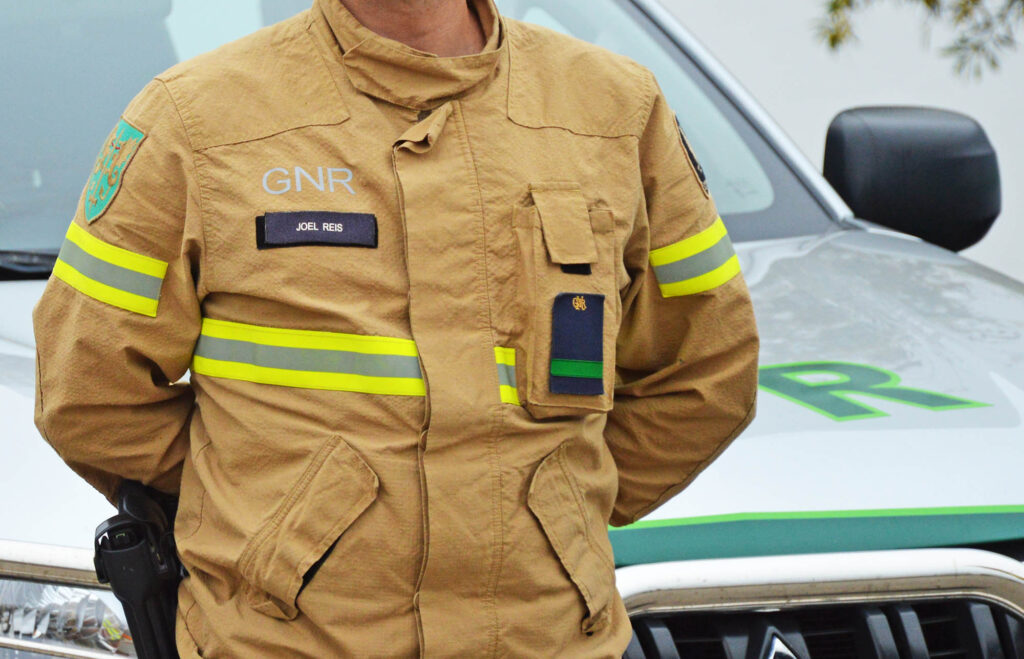The lack of cleaning of agricultural and forestry land, to prevent rural fires, has already resulted in “around” 2,5 million euros in administrative offenses since 2020, an official source from the Republican National Guard (GNR) told Lusa.
“Since 2020, I can tell you that the amount that has already come in, in a very low way, is around 2 and a half million [euros]”, stated lieutenant colonel Ricardo Vaz Alves, from the directorate of GNR Nature and Environment Protection Service (Sepna).
To understand what generated the 2,5 million euros collected, the official explained that we are “talking about 140 euros for natural persons and 800 euros for legal persons”, at the minimum of the administrative offence, allowing us to have “an idea of the number of processes” that had “the final decision being the payment of a fine, because that is not always the decision”.
“Sometimes there is a decision to admonish, which is also legally admissible, a decision to archive due to lack of evidence and a decision to pay half the amount, also depending on the severity, the process or even the resolution of the process itself, the good faith, in this case, of the resolution”, he added.
The fines foreseen for the lack of cleaning of forest and agricultural land, which must be carried out every year by April 30, can reach 5.000 euros for natural persons and 25.000 for legal entities, amounts that vary depending on the respective municipal council.
According to data sent to Lusa, between 2018 and 2023, the GNR recorded the greatest non-compliance with land cleaning, in descending order, in the districts of Santarém (4.131 administrative offences), Castelo Branco (2.816), Braga (2.660), Coimbra (2.061 ) and Aveiro (1.802).
The districts with the lowest record of non-compliance with fuel management, in the same period, were Évora (215 fines), Bragança (295), Portalegre (375), Viana do Castelo (468) and Beja (756).
From 2018 to 2023, the GNR totaled 26.140 administrative offenses due to lack of cleaning of forest land and, from 2019 until last year, registered 3.419 for burning and 1.359 for burning.
This year, land cleaning inspections only start on May 01st.
Taking into account the number of signs of lack of cleaning, between 2019 and 2023, in a first check, without fines, the GNR military registered the highest number in the districts of Leiria (23.557), Santarém (11.786), Viseu (9.922), Castelo Branco (7.150) and Coimbra (7.701), and lower defaults in Évora (675), Porto (1.329), Portalegre (1.419), Beja (1.564) and Bragança (1.751).
Stating that, after identifying the causes of fires, “the use of fire is the biggest concern” and that “burnings and fires alone contribute to more than 35% of fire occurrences in recent years”, the GNR calls for “an effort [of all] so that the reduction of fuel can be carried out using other alternative methods”, such as “the incorporation into the soil and the production of biomass, thus reducing the risk of generating incidents”.
According to Ricardo Vaz Alves, precisely what continues to create the greatest pressure of all causes of fire is “the use of burning and burning” and “there continues to be great difficulty in identifying alternative methods” for managing forestry waste.
“In this sense, we currently have very intensive communication, I’m not saying [for] abolition, because fire will always exist, but at least to adapt behaviors and the treatment of forestry waste by other means, other than burning and burning, either through incorporation into the soil, or through later sale to biomass plants or to processing plants into 'pellets'”, he stressed.
The Sepna official highlighted that in the signs, on a first pass through the land, there is still no place for an infraction, and only on the second pass to check these first situations, from May 01st, will the administrative offense be recorded.
The GNR soldier acknowledged that it will not be possible to carry out the check in all locations on May 01st, but that the action will be carried out depending on the number of personnel and the danger of the fire season, but that any change in the deadline is up to the entities legislative.
“Our focus is never on the vehicle itself, our focus is always on safeguarding safety and preserving what are the minimum conditions of distance from the building”, stressed Ricardo Vaz Alves.
The Sepna leader revealed that the GNR has already carried out “more than 10.000 signs” this year and believes that, by the end of the month, they could “reach 12.000 signs”, in “line, eventually, with 2023 and 2021”.



















Comments